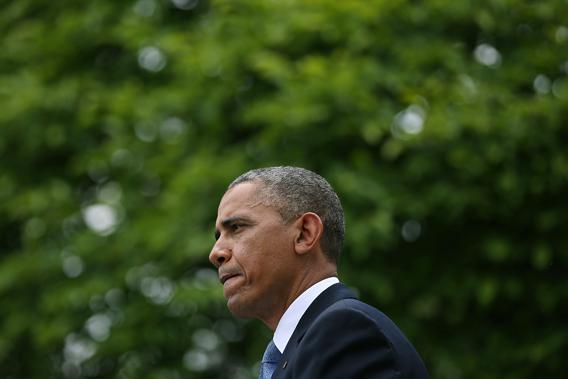Washington’s need for periodic scandal is almost biological. For legislators, it’s an opportunity to strut on the national stage. For the party out of power, it is politics by other means. For the press, it’s an escape from the boredom and frustration of a second term. Scandal means a break in the routine, a thrilling emergency. At some level, the whole political class loves it.
Which is not to say that scandal is never real. Watergate was real. The Whitewater affair was not real but managed to be quite damaging to the Clinton administration anyway. Iran-Contra was real, but not damaging enough to turn Republicans out of office in 1988. Plamegate, which began with the question of who leaked the name of a clandestine CIA agent to a reporter, wasn’t real or damaging, though it did result in Dick Cheney and George W. Bush not speaking anymore.
What a scandal needs to count as real is an underlying crime. What it needs to be damaging is a strong story line. The Benghazi business falls short on both counts. This investigation posits that the top administration officials conspired to hide the truth about the September attack on an American consulate that resulted in the death of four diplomats, including the U.S. ambassador to Libya. Republican accusations about Benghazi derailed the nomination of U.N. Ambassador Susan Rice to succeed Hillary Clinton as secretary of state.
The charge against Rice was essentially that she delivered distorted political spin by calling the attacks spontaneous riots rather than a planned act of terrorism—the theory being that before the 2012 election, the Obama administration didn’t want to tarnish its success against al-Qaida. It emerged yesterday that Rice’s much-parsed Sunday television talking points were prepared not by the State Department but by the more politically independent CIA. But in an inquisitorial frenzy, dead ends are synonymous with new avenues. Republican investigators can now return to Gregory Hicks, the diplomat serving in Tripoli, Libya, who claims he was punished for speaking frankly to Republican investigators.
This claim, too, is extremely weak. In less tendentious perspective, Benghazi was a tragedy, a chain of errors that left a diplomatic outpost vulnerable. Even clearer is the political motivation behind that investigation, which is to embarrass Hillary Clinton, the front-runner for the 2016 Democratic nomination. When Sen. Lindsey Graham of South Carolina fulminates that Benghazi is “every bit as damaging as Watergate,” the most accurate translation is, “I am facing a Republican primary challenge.” Last week, Graham survived that challenge and may now begin to calm down.
The fresher IRS scandal, in which agents are alleged to have targeted the Tea Party and other conservative organizations for examinations looks similarly unreal but has much more potential to be damaging. This is because it has a readily comprehensible narrative: that the Obama administration used the tax enforcement agency to harm its political enemies. This surely did not happen, but it is something, unlike Benghazi, that people can understand. Richard Nixon used tax audits as a tool of political persecution during Watergate. It’s the kind of abuse that Obama’s paranoiac enemies believe him to be capable of.
What actually seems to have happened is this: In 2010, a spate of conservative groups was applying for tax-exempt status. This designation is available to organizations whose main activity is not political, so most of the groups were running a kind of scam by asking for it. Low-level employees in a Cincinnati field office thought they could create a shortcut by watching out for red-flag political terms like “patriots” and “9/12” on the applications. The IRS inspector general has persuasively concluded that this was an instance of bureaucratic overzealousness meeting a vague standard, not politically motivated, and not criminal.
But this kind of scandal can succeed even where it fails the reality test, thanks to bipartisan cowardice. No politician wants to defend the IRS. So President Obama has done his best to appear furious about what happened, the Justice Department has announced a criminal investigation, and the Treasury has forced the IRS acting commissioner, who may or may not have done anything wrong, to resign. Feeding the wolves in this way is a bad idea; they know where their next meal is to be had. As the fever takes hold, any additional controversy—such as the Justice Department’s subpoena of Associated Press phone records in pursuit of a leak—is accorded scandal status. The administration is officially “beset” and “besieged.”
The final requirement of a successful scandal is that it be less boring than what people would be talking about otherwise. Here, Benghazi and the IRS are up against implementation of the Affordable Care Act, Round 17 of the budget battles, and a stalemate over immigration reform. Washington is desperate for diversion. But it’s going to have to try harder—these scandals aren’t any fun.
A slightly different version of this piece appears in the Financial Times.
